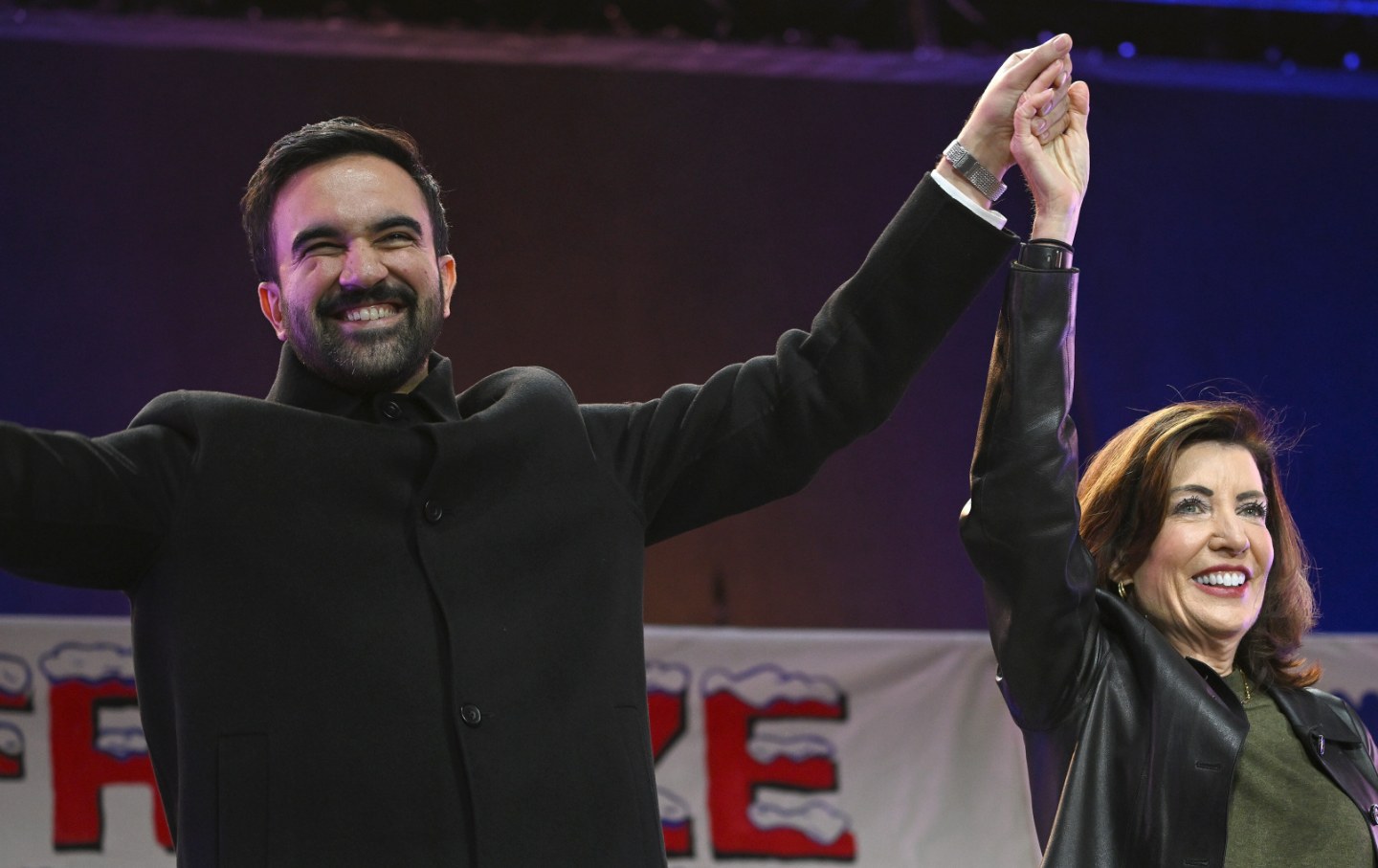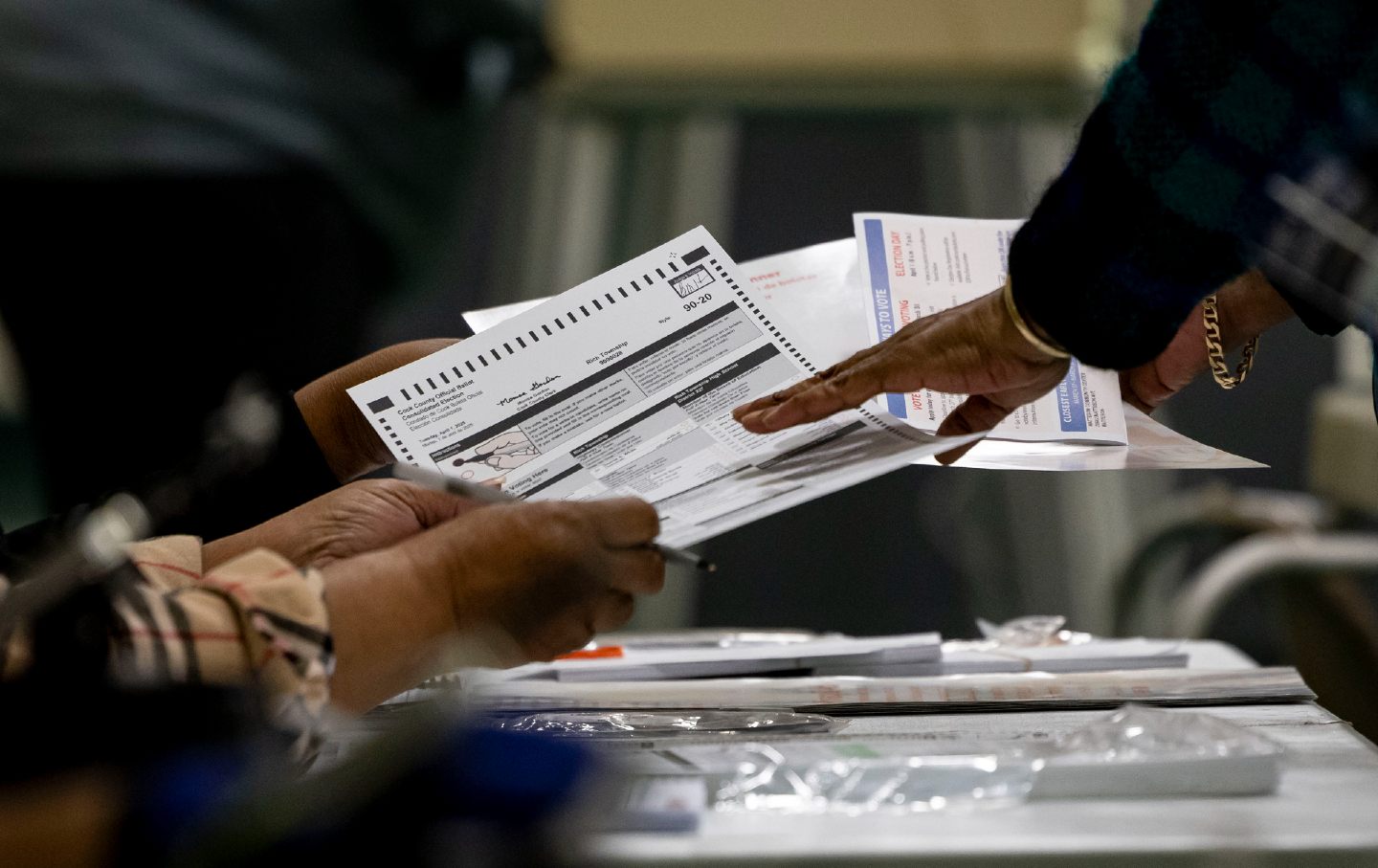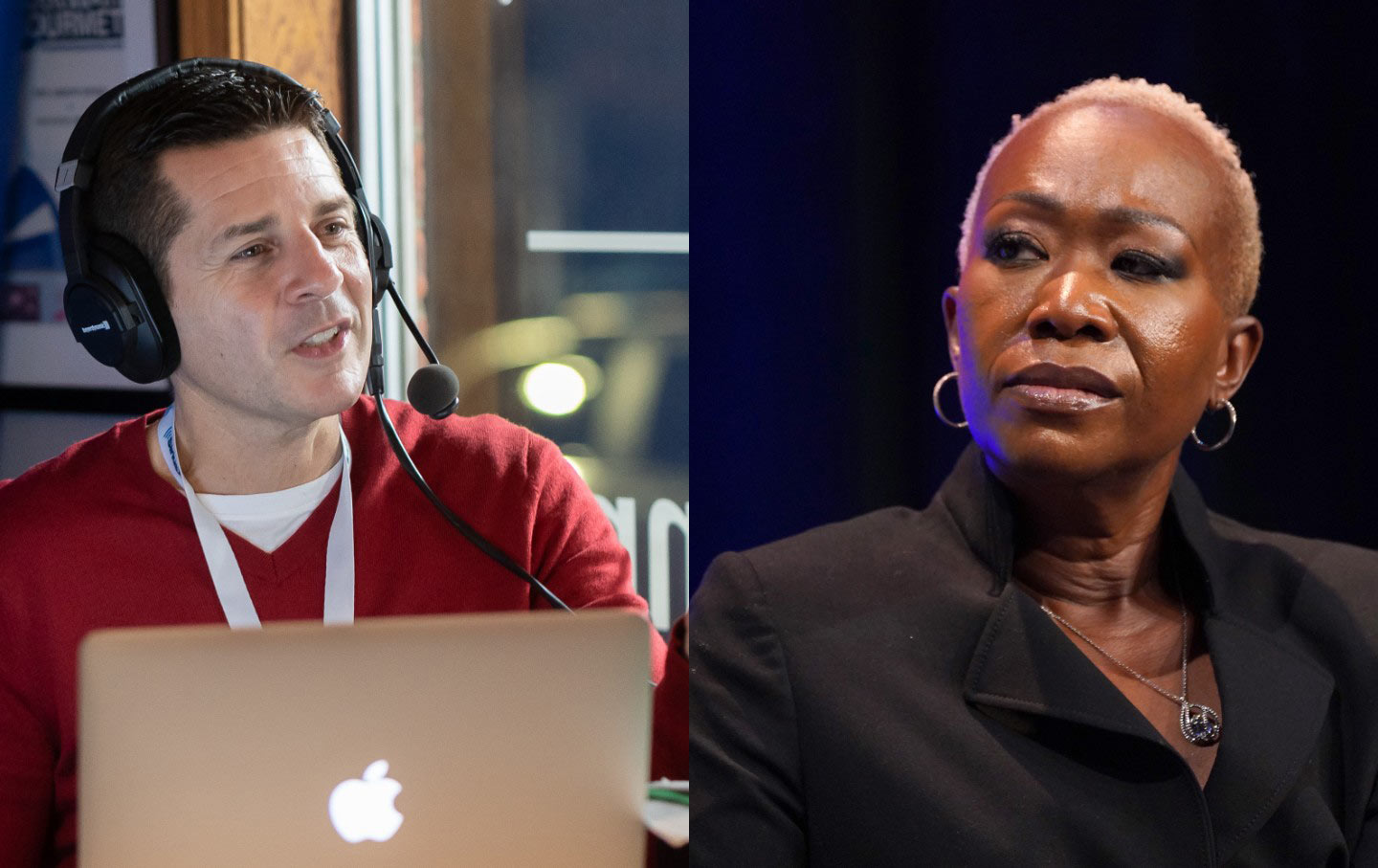Letters From the November 13/20, 2023, Issue
The economics of freedom… Oppenheimer: red or pink?…
The Economics of Freedom
In his interview with Daniel Zamora Vargas and Anton Jäger for their new book, Welfare for Markets: A Global History of Basic Income, Daniel Steinmetz-Jenkins suggests that Martin Luther King Jr. “moved away from the welfare state as a solution to Black unemployment” in the last years of his life [“Why These Leftists Oppose Free Money,” September 4/11].This is simply false.
For the bulk of the Black freedom movement during this period—King, Bayard Rustin, A. Philip Randolph, the National Welfare Rights Organization, the Black Panther Party, and so on—demands for full employment and a guaranteed annual income were tied together. Rustin and Randolph’s Freedom Budget called for both a federal jobs guarantee and a guaranteed income for those unable to work. This effort included King, who wrote the foreword for its summary edition and endorsed it in his 1967 book, Where Do We Go From Here? In the days after his assassination, Coretta Scott King told a rally in support of the striking sanitation workers of Memphis: “Every man deserves a right to a job or an income.” Similarly, fliers for the 1968 Poor People’s Campaign made it plain: “We, the Poor People of America, demand: Decent Jobs and Income!” As head of the Full Employment Action Council, Scott King continued the civil rights struggle to expand the welfare state in the 1970s, building on the struggle for the Freedom Budget and relying on the expertise of its lead author, economist Leon Keyserling.
Zamora Vargas’s claim that activists during this period “were less concerned with coalition building and mass politics” is also untrue. For example, Scott King’s organization brought together labor unions and community groups. Its organizing included a “Full Employment Action Week” in 1977, in which upwards of 1.5 million people, protesting in 300 cities, called for a federal jobs guarantee.
David Stein
Assistant Professor of History
University of California, Santa Barbara
los angeles
The writer is the author of Fearing Inflation, Inflating Fears: The Civil Rights Struggle for Full Employment and the Rise of the Carceral State, 1929–1986, forthcoming from University of North Carolina Press.
Zamora Vargas and Jäger Reply
While the 1970s still saw its fair share of civil rights activists who advocated for full employment, what David Stein refers to as the “Black freedom movement” was far from the united front he would like it to be. As he is surely aware, after the passage of the Civil Rights and Voting Rights acts, internal strategic debates about the future of the movement also reflected the increasingly diverse material interests represented by these Black constituencies. In our book, we argue that the appeal of a predominantly income-based strategy, both within and outside the Democratic Party—a strategy more agnostic about the question of full employment—is best understood in conjunction with the decline of the type of broad-based, labor-centered movement that was previously seen as a premise for Rustin’s Freedom Budget. For a growing group in the coalition, guaranteeing an income became a more appealing solution than a public work provision, as was indeed the case for the National Welfare Rights Organization mentioned by Stein, and for James Boggs, who simply argued that “talk about full employment” was “reactionary.” This does not mean that civil rights mass politics had died out by the 1970s. But it does seem rather hard to deny that a previous model was in relative retreat, and that many felt more comfortable casting suspicion on it.
Daniel Zamora Vargas
Professor of Sociology Université Libre de Bruxelles
brussels
Anton Jäger
Lecturer in the History of Political Thought
Oxford University
oxford, u.k.
Oppenheimer: Red or Pink?
Jorge Cotte’s “A Black Hole” [August 21/28] is a markedly literate, evocative essay on Christopher Nolan’s blockbuster film Oppenheimer and on the “father of the A-bomb,” J. Robert Oppenheimer, but it generally ignores the movie’s many problems as history.
That film errs troublingly on some science and scientist matters. Oppenheimer did not confer with Einstein in 1942 on the subject of a nuclear detonation possibly igniting the atmosphere. Nor did the Cambridge physicist Patrick Blackett ill-treat Oppenheimer. And it was physicist Max Born, not Niels Bohr, who urged Oppenheimer to leave Cambridge for theoretical physics at Gӧttingen.
Far more significantly, both the movie and Cotte’s review do not recognize the overwhelming evidence on a crucial subject: Oppenheimer, though always loyal to the United States, lied to the government during and after World War II by denying his Communist Party membership in the late 1930s to the early ’40s and thus, in his sworn testimony in the 1954 hearings, committed perjury. This may explain what has often surprised many analysts: why Oppenheimer fell apart during those hearings.
Readers can pursue this troubling subject of Oppenheimer’s CP membership in the John Earl Haynes–Harvey Klehr article in the online Washington Decoded (February 2012). Related analyses appear in my shorter article in that journal (July 2023) and in Gregg Herken’s essay in the Journal of Cold War Studies (2009).
Popular
“swipe left below to view more authors”Swipe →Ideally, defenders of Oppenheimer will move beyond simple assertions or such portrayals to provide an informed, evidence-based analysis while presenting their case. So far, although articles about the troubling subject of Oppenheimer’s Communist Party membership first appeared at least 10 years ago, no Oppenheimer defender has provided in print any such informed defense.
Barton J. Bernstein
Professor of History Emeritus
Stanford University
palo alto, calif.
Kai Bird Replies
Professor Barton Bernstein is a gentleman scholar and a colleague from the deep recesses of the archives. But he is also a dedicated contrarian, and on this question, his instincts have led him astray. There is no “overwhelming” body of evidence that Oppenheimer was a member of the Communist Party in the 1930s and ’40s. The sparse “evidence” Bernstein has in mind is discussed at length in the biography of Oppenheimer I wrote with the late Martin J. Sherwin in 2005. Readers can judge for themselves. But we judged that “evidence” as highly circumstantial, based on hearsay decades after the fact. Sherwin and I weighed this evidence—and the FBI’s 7,000-page Oppenheimer file—and concluded that if J. Edgar Hoover couldn’t prove that Oppenheimer was a Communist, neither could we. To the contrary, the biographical “whole man” portrait we painted shows that Oppenheimer was quite definitely “pink” but not ever “red.”
Kai Bird
new york city
The writer is a coauthor of the Pulitzer Prize–winning biography American Prometheus, from which the film Oppenheimer was adapted.
Your support makes stories like this possible
From Minneapolis to Venezuela, from Gaza to Washington, DC, this is a time of staggering chaos, cruelty, and violence.
Unlike other publications that parrot the views of authoritarians, billionaires, and corporations, The Nation publishes stories that hold the powerful to account and center the communities too often denied a voice in the national media—stories like the one you’ve just read.
Each day, our journalism cuts through lies and distortions, contextualizes the developments reshaping politics around the globe, and advances progressive ideas that oxygenate our movements and instigate change in the halls of power.
This independent journalism is only possible with the support of our readers. If you want to see more urgent coverage like this, please donate to The Nation today.
More from The Nation

Trump's Denunciations of the Iranian Killings Are Pure Hypocrisy Trump's Denunciations of the Iranian Killings Are Pure Hypocrisy
The arbitrary arrests and killings committed by agents of Trump’s authoritarian-style rule differ only in number, not in kind, from those in Iran.

Zohran Mamdani: Why I’m Endorsing Kathy Hochul Zohran Mamdani: Why I’m Endorsing Kathy Hochul
Exclusive: New York City’s mayor explains why he’s backing New York’s governor in the 2026 election.

Democrats Need to Get Serious About Stopping Trump From Rigging the Midterms Democrats Need to Get Serious About Stopping Trump From Rigging the Midterms
Here’s one idea for a coordinated response to Trump’s coordinated attacks.

Mamdani Touts a Stunning View of the City, but Struggles to Clear the Sidewalks Mamdani Touts a Stunning View of the City, but Struggles to Clear the Sidewalks
The New York mayor is opening the roof of the David N. Dinkins Municipal Building to the public, but has plenty of work ahead to make the city below more affordable and accessible...

Has the Mainstream Media Failed Us? Has the Mainstream Media Failed Us?
Dean Obeidallah and Joy Reid discuss independent media’s role in an increasingly undemocratic world.



